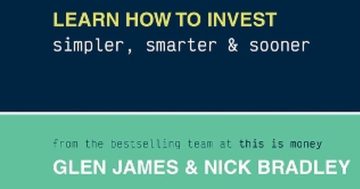Dana George* says financial independence is not about how much you earn; it’s about how you manage those earnings.
 When we were young and first paying bills, we believed that money represented independence – and, by extension, happiness.
When we were young and first paying bills, we believed that money represented independence – and, by extension, happiness.
What we would eventually learn is that financial independence is about making smart decisions that give you financial freedom.
My husband and I grew up in 85-square-metre homes just blocks away from one another.
Shortly after our wedding, we were thrilled to buy our own 85-sq/m abode.
It wasn’t much, but it was cute and inexpensive.
And money worries did not keep us up at night.
When many of our friends had purchased much larger, flashier homes, ego drove us to sell our affordable home and buy a bright, shiny, and too-expensive home instead.
Sleepless nights began.
The fact that some of our new neighbours used lawn chairs as living room furniture and were as anxious about money as we were was no comfort.
Consider us a cautionary tale – a couple of kids who had to learn the hard way.
If we had it to do over again, here are some steps we would have taken:
- Forget the Joneses
Guess what all our friends with new cars and impressive houses had in common?
Lots and lots of debt.
We were trying to live a dream that we hadn’t earned and making ourselves sick doing so.
One more note about keeping up with the Joneses.
Of all the couples we hung out with back when we thought we had starring roles on Lifestyles of the Rich and Famous, only two are still married (and we’re one of them).
I don’t know with certainty whether that’s because of finances, but money is the number one issue couples fight about.
- Take advantage of your superannuation
This tip is almost painful to write.
My husband and I both started working early and worked our way through university.
And yet, because we were so young and desperate to keep up with the now-divorced Joneses, we did not contribute extra to our super plans for years.
Even when we did start to contribute, we viewed it as a sacrifice – and it’s only recently that we’ve begun to pat ourselves on the back for those monthly contributions.
- Milk company benefits
My husband’s company had a great tuition reimbursement program that paid for much of his undergrad work.
I now know that I should have looked for a company that offered the same benefit, as it would have saved me $30,000, at a minimum.
What older, wiser me would recommend is that you look at all the benefits offered by your employer and monetise them – whether it’s tuition reimbursement, a workplace gym, legal consultations, or free food.
- Meet with a financial advisor
It’s easy to get the idea that financial advisors are for people with more income, less debt, and a greater knowledge of investing.
Those are precisely the folks who don’t need the help.
When you find the right financial advisor, your entire outlook on money will change.
You’ll worry less about how much you earn and think more about how you’re going to use the money you have available.
The Vanguard Group investment advisors crunched the numbers and say a good financial advisor can add 3 per cent to their clients’ returns.
Doesn’t sound like much, does it?
But let’s see what 3 per cent might have done for us over the years.
For the sake of this scenario, we’ll assume that we have invested $1,000 per month for the past 20 years and earned 6 per cent interest.
Compounded annually, we would be sitting on $441,427 today.
If our financial advisor could truly improve the performance of our investments by 3 per cent, that means we would earn 9 per cent interest.
Our monthly investment of $1,000 would now be worth $613,921 in 20 years, a difference of more than $172,000.
- Invest, invest, invest
Here’s one of the primary things I remember about being young: I could not imagine getting older.
Investing felt like throwing money into a black hole, with no tangible evidence that it had ever been earned.
Investing your money is different from saving it.
When you invest, you buy assets – such as stocks, shares, or real estate – with the intention of getting a decent return on that investment.
When you save, you put money into an interest-earning account that you can access when you need it.
Investments bring higher returns, but also come with higher risks, and as such should be viewed as long-term strategies.
In addition to making you comfortable in retirement, investments can help you:
- Outpace inflation by generating a higher rate of return.
- Earn extra income by investing in assets that pay dividends.
- Increase your overall net worth – giving you a greater buying power and making you more attractive to lenders.
- Leverage tax advantages, especially toward your retirement fund.
Financial independence
Here’s what I wish I could tell that goofy young couple, living in a house they couldn’t afford, working their way through business school:
- You don’t have to know all there is to know about money today. Just get started and learn along the way.
- Compound interest is either your worst enemy or your best friend. Make friends with it.
- You’re going to be middle-aged one day and you’re going to wish you’d started investing while you were still in nappies.
- All that stuff you’re tempted to buy is going to be sold in a garage sale one day. The investments you make will be there when you’re old.
True financial freedom means having options.
Don’t want to wait until you’re 80 to retire?
You won’t have to.
Want to pick up and move halfway across the globe?
You can do it.
And that’s the point.
If you’re looking for financial independence, it’s up to you to make it happen.
Not to labour the point, but it’s not how much you earn; it’s how you manage that money that counts.
* Dana George has been writing about personal finance for more than 20 years.
This article first appeared at www.fool.com











